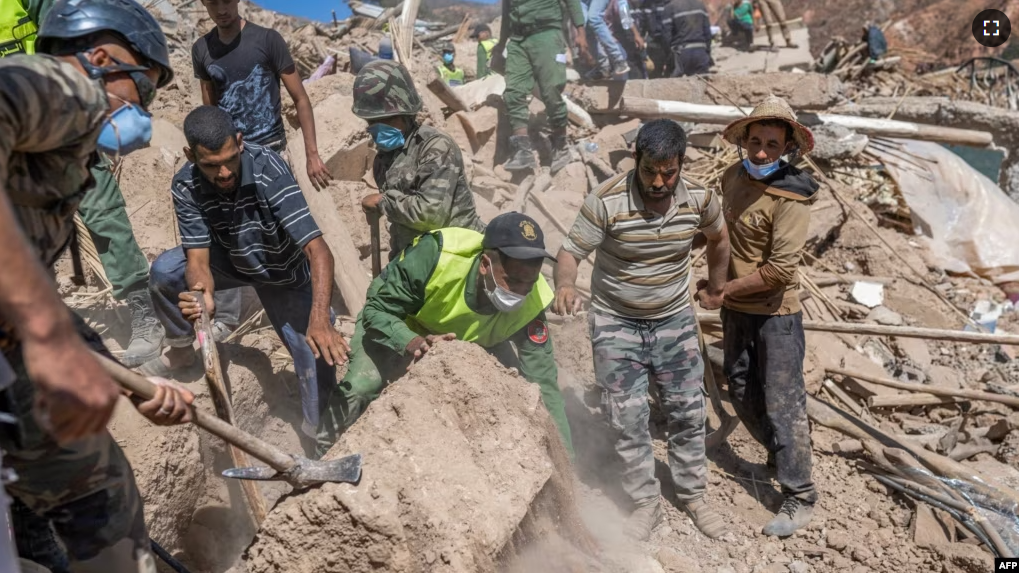Rescue workers continue to search the wreckage of a large earthquake that struck Morocco Friday.
Officials say almost 2,500 were killed in the quake, but that they expect that number will rise. On Monday, Morocco’s state news agency reported almost 2,500 others are injured. And, it reported more injured people continue to arrive at hospitals.
Moroccan soldiers, doctors and other aid teams are still making their way to the Al Haouz area high in the Atlas mountains, the epicenter of the earthquake. The area is about 70 kilometers from the city of Marrakech.
The United Nations said the magnitude 6.8 earthquake affected 300,000 people. The damage was great because the starting point of the shaking was not far below the ground.
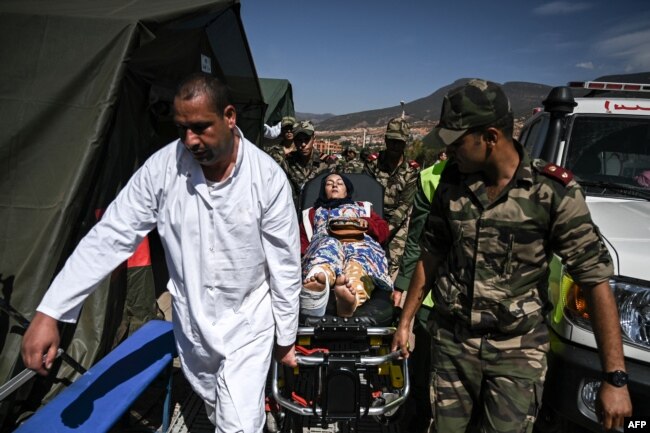
The U.S. Geological Survey said it was the strongest quake to strike the North African nation since 1900. And, it is reported to be country’s deadliest since 1960, when at least 12,000 people were killed in and near the city of Agadir.
Offers of help
So far, Morocco has accepted assistance from four countries – Spain, Qatar, Great Britain and the United Arab Emirates. Other nations have offered help, as well.
But, the Moroccan government says it wants to avoid a “counterproductive” lack of coordination by accepting help from too many countries.
One survivor, Salah Ancheu, called the earthquake “a catastrophe” even as a truckload of soldiers arrived in Amizmiz to help. “We don’t know what the future is. The aid remains insufficient,” the 28-year-old said.
Mountainside homes and the tower of the local mosque fell down.
Groups from the Moroccan army left Monday from Amizmiz to move into the small mountain villages. Heavy equipment was sent to clear the roads and both visitors and residents lined up to give blood.
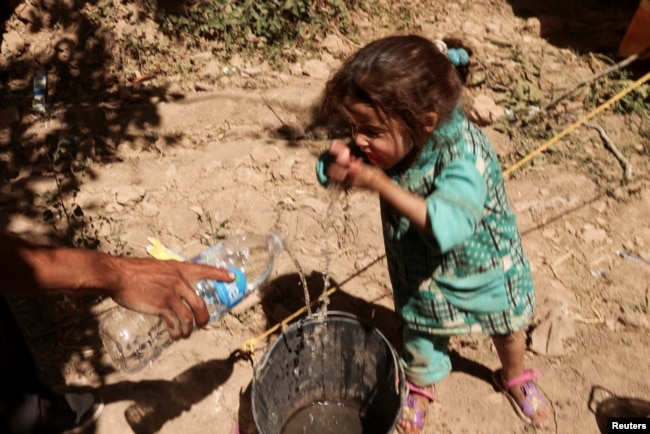
Some news reports said villagers wept as they saw dead bodies being carried through the streets.
A number of nations said they were ready, but not yet permitted to send help. The group Rescuers Without Borders said about 100 teams, totaling 3,500 rescuers, are prepared to help.
France said four of its citizens died. It has offered assistance but has not been given permission to send rescuers.
In the Czech Republic, 70 rescuers are waiting at an airport for permission to enter Morocco. In Germany, a rescue team of 50 was sent home after waiting at an airport.
A spokesperson from the German foreign ministry said Morocco’s refusal of aid from some nations should not be seen as political. “I’m sure they have thought very carefully about which forces can be deployed and how they can get there,” the spokesperson said.
French Foreign Minister Catherine Colonna said France has offered more than $5 million in support. She said Morocco’s decision on that offer is its own to make and “must be respected.”
People sleeping outside
Many people continue to sleep outside, fearing smaller earthquakes that often follow a major one.
In the village of Imgdal, women and children gathered outside and some kept warm around an open fire on Monday morning.
In another village, Tafeghaghte, Hamid ben Henna said his 8-year-old son died in the quake. He had gone to another room while the family was sharing a meal Friday. The rest of the family survived.
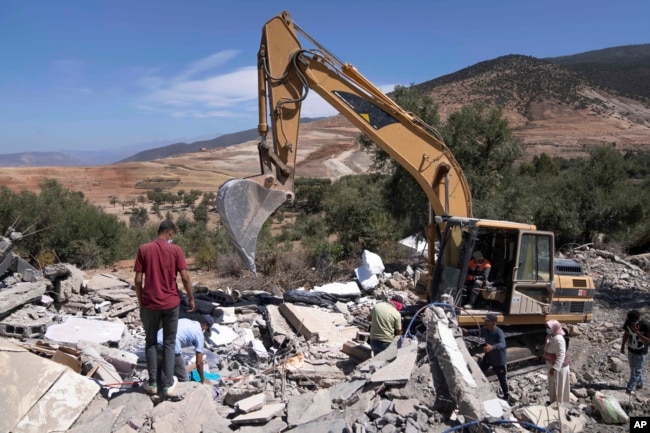
On a road near the town of Adassil, close to the center of the quake, one rescue worker was trying to clear the rocks that were preventing vehicles from getting by.
He said other roads were in bad shape. “We’re trying to open them, too,” said Ayman Koait.
People said they dug through the rubble of their homes looking for relatives. They also moved rocks and walls looking for important items.
Many of the homes are made from wood, rock, and mud, which made them fall easily when the ground started shaking.
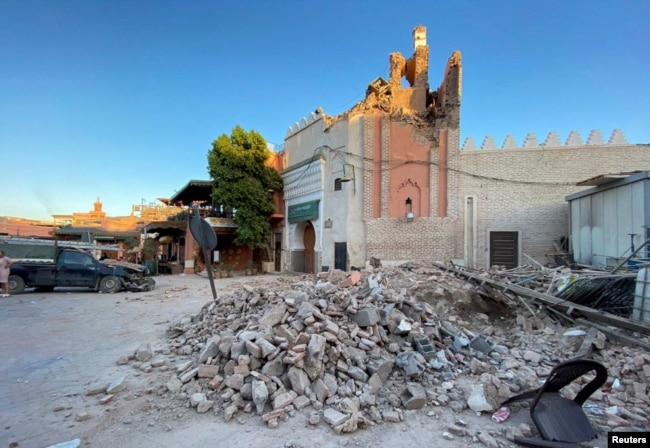
One military worker said “it is difficult to pull people out alive” because the walls turned to rubble and did not leave any space for air.
UNESCO, the United Nations cultural organization, said many historic buildings in both Marrakech and the areas closer to the center of the earthquake were damaged.
I’m Dan Friedell.
Dan Friedell adapted this story for Learning English based on reports by The Associated Press and Reuters.
____________________________________________________
Words in This Story
epicenter–n. the strongest location of an earthquake
magnitude–n. a numerical measurement of the strength of an earthquake
counterproductive–adj. not helpful; working against an end result
coordination–n. the act of working together
catastrophe–n. a bad event; a disaster
insufficient–adj. not enough
